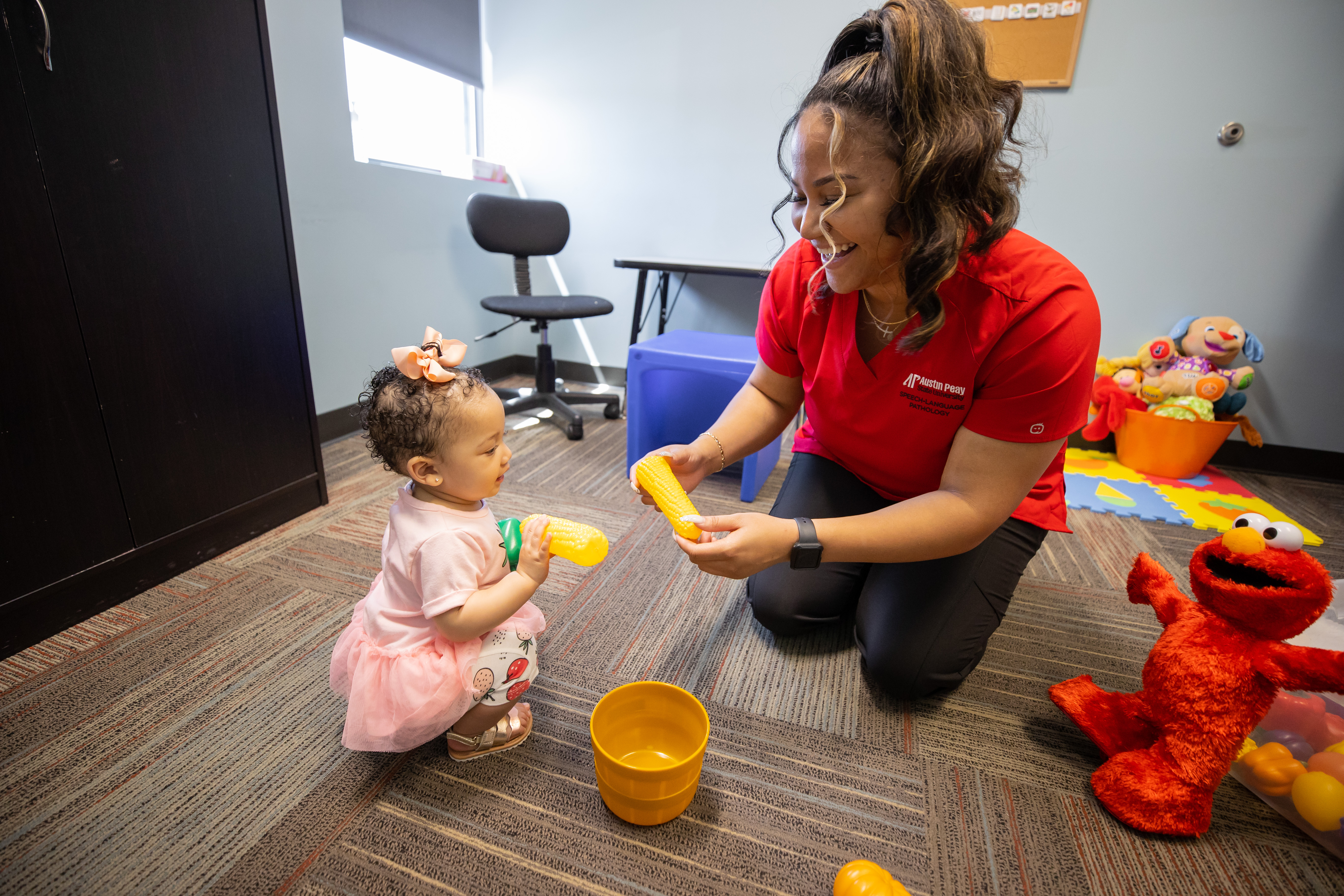When Should You Reach Out to a Speech Pathologist for Language Disorders?
When Should You Reach Out to a Speech Pathologist for Language Disorders?
Blog Article
Just How a Speech Pathologist Can Aid Improve Interaction Abilities
Efficient interaction is a foundation of expert and personal success, yet many people encounter obstacles that prevent their capacity to reveal themselves clearly. A speech pathologist is geared up to address these barriers via targeted analysis and treatment methods tailored to each person's demands. By using evidence-based restorative methods, they not only work to boost speech and language disorders yet likewise enhance overall communicative capability. Recognizing the diverse function of a speech pathologist exposes just how their knowledge can transform lives, welcoming a better examination of the details techniques and outcomes linked with their practice.
Understanding Interaction Disorders
Understanding communication problems is necessary for recognizing exactly how they influence individuals' capacity to express themselves and engage with others. Interaction disorders include a variety of troubles that affect speech, language, and social communication, usually impeding efficient interaction. These disorders can develop from numerous factors, including neurological problems, developing hold-ups, physical impairments, or psychological problems.
Speech problems might manifest as problems in voice, expression, or fluency production, impacting exactly how words are obvious or talked. Language disorders, on the other hand, include difficulties in understanding or making use of language, which can impede both non-verbal and verbal communication. Social communication conditions are defined by problems in the practical facets of interaction, such as taking turns in discussion or understanding social cues.
The consequences of communication disorders are profound, impacting not just the person's capability to share feelings and ideas however likewise their social connections, academic chances, and general lifestyle. Understanding of these disorders can foster empathy and assistance, urging efficient methods for communication and interaction. Comprehending the complexities of communication conditions is an important step towards advertising inclusivity and resolving the requirements of those impacted.
Role of a Speech Pathologist
Speech pathologists regularly play an essential function in identifying and treating communication problems, utilizing a variety of evidence-based techniques customized to every person's demands. These experts collaborate with people across the lifespan, from youngsters with speech delays to adults recouping from strokes or distressing brain injuries. Their competence encompasses a selection of communication issues, consisting of articulation, voice, fluency, and language conditions.
In healing setups, speech pathologists make use of structured treatments developed to boost communication abilities. They may apply techniques such as speech workouts, language games, and social interaction training to facilitate enhancements in meaningful and receptive language capabilities. Speech Pathologist. In addition, they inform customers and their families regarding reliable communication methods and adaptive techniques to browse everyday interactions
Beyond straight therapy, speech pathologists work together with various other healthcare caretakers, instructors, and professionals to make certain an extensive technique to treatment. They advocate for clients by supplying sources and support, allowing people to accomplish their interaction goals and improve their total lifestyle. As experts in the area, speech pathologists are vital in cultivating effective communication, advertising independence, and enhancing social participation for those with communication challenges.
Assessment and Diagnosis Process
The assessment and diagnosis procedure performed by speech pathologists typically involves a comprehensive evaluation to identify interaction problems properly. This procedure begins with an in-depth medical history, where the clinician gathers relevant information about the person's clinical, academic, and developmental background. Recognizing the context of the person's interaction difficulties is vital for a precise medical diagnosis.
Following the medical history, speech pathologists utilize standard examinations and informal analyses to assess various facets of communication, including speech audio production, language comprehension, meaningful language, and social communication skills. These analyses are tailored to the person's age and certain issues, providing useful data for evaluation.
Observation is additionally an essential element of the assessment procedure, as it allows the clinician to see direct exactly how the specific connects Read More Here in natural setups. Additionally, meetings with family participants and teachers can supply insight into the person's communication difficulties throughout different settings.
Once the analysis is complete, the speech pathologist synthesizes the searchings for to identify a medical diagnosis and recommend proper treatments. This extensive analysis process guarantees that people obtain targeted support tailored to their unique communication demands, laying the foundation for efficient therapeutic methods.
Healing Techniques and Methods
Countless therapeutic methods and approaches are employed by speech pathologists to deal with a range of interaction disorders efficiently. One extensively made use of method is articulation treatment, which concentrates on correcting speech sounds via repetition and aesthetic cues. This method is especially advantageous for individuals with speech audio disorders.
Another effective method is language treatment, which enhances both responsive and meaningful language abilities. This may include interactive tasks that advertise vocabulary growth, sentence structure understanding, and conversational skills. In addition, speech pathologists often utilize social skills training to improve pragmatic language abilities, enabling individuals to browse social communications more successfully.
Fluency shaping and stuttering modification strategies are especially created to help those experiencing fluency conditions. These methods help clients create smoother speech patterns and take care of the physical and psychological parts of stuttering.
Moreover, different and augmentative interaction (AAC) systems are utilized for individuals with extreme communication problems. These systems, which can consist of gestures, icons, or digital devices, provide crucial assistance for effective interaction.
Benefits of Speech Therapy

Furthermore, speech therapy can aid in creating crucial listening and comprehension abilities, promoting better communication in discussions. Individuals with cognitive-communication problems can likewise benefit, as treatment focuses on reinforcing memory and analytical abilities, essential for reliable communication.
An additional important element is the psychological support provided throughout therapy sessions. Speech pathologists develop a safe setting, encouraging people to conquer anxiety and aggravation pertaining to their communication concerns. This support can cause improved self-confidence and overall mental health.
Furthermore, very early intervention with speech treatment can avoid more problems, making certain that individuals reach their complete communicative possibility. In general, the advantages of speech therapy extend past mere speech enhancement, favorably impacting different measurements of life for those affected by communication problems.
Conclusion
In summary, speech pathologists play a critical role in dealing with interaction problems through evaluation, medical diagnosis, and customized therapeutic interventions. By utilizing evidence-based strategies, these specialists improve people' speech and language capabilities, promoting boosted clarity, fluency, and social interaction skills. The benefits of very early treatment emphasize the importance of seeking support from speech pathologists, as their expertise can substantially boost communicative possibility, ultimately resulting in higher success in both individual and specialist rounds.

Speech pathologists regularly play a vital function in treating and identifying interaction disorders, employing a variety of evidence-based strategies tailored to each individual's requirements. As specialists in the area, speech pathologists are crucial in promoting reliable interaction, advertising freedom, and enhancing social participation for those with communication challenges.

Report this page